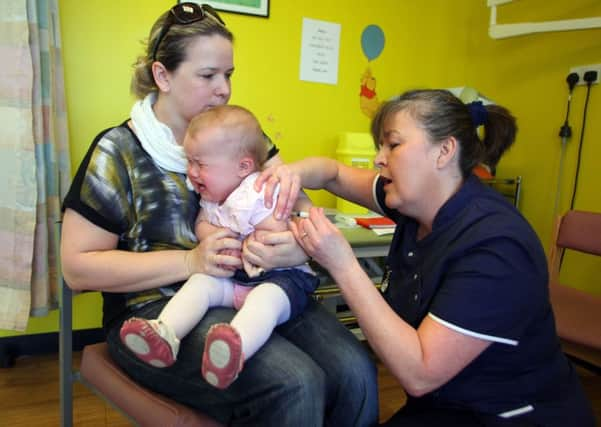For your children’s sake, don’t lose faith in this life-saving medical breakthrough – Harry Burns


Measles is a highly infectious disease which can cause serious problems such as pneumonia, brain inflammation, blindness and death. In the UK in the 1960s, there were hundreds of thousands of cases each year and many deaths. After a measles vaccine was introduced, the number of cases dropped dramatically. By 1994 levels of immunity in the population had risen to a sufficiently high level and, for the first time, nobody died of measles in that year.
So far this year, 170 countries have reported more than 112,000 measles cases to the World Health Organisation (WHO) — a 300 per cent increase on this time last year. Immunisation rates have fallen, levels of population immunity have dropped, and the infection is reappearing.
Advertisement
Hide AdAdvertisement
Hide AdVaccination has had an enormously positive impact on health since Edward Jenner, an English physician, produced the world’s first vaccine in 1796. At the time, smallpox outbreaks regularly killed hundreds of thousands of people in Europe each year.
Attempts were made to protect people by rubbing infected material from a smallpox sufferer into scratches in the skin in the hope that it would produce a mild form of smallpox from which the person would recover. Jenner noticed farm workers seemed immune to smallpox if they had had cowpox.
Jenner infected an eight-year-old boy called James Phipps, his gardener’s son, with cowpox pus. The boy developed a fever which settled within a few days. Jenner then exposed him to smallpox. The boy showed no ill effects. He was immune.
Jenner would never have got away with this in modern times when clinical safety is paramount in vaccine testing. Jenner’s discovery spread across Europe and the Americas, saving millions of lives. Worldwide, the last case of smallpox occurred in 1977. By 1980, the WHO declared the disease eradicated. Jenner is said to have saved more lives than any other doctor in history.
Advertisement
Hide AdAdvertisement
Hide AdVaccination has drastically reduced the risk of death from infections such as polio, diphtheria and tuberculosis. These diseases – common killers of children in the last century – are now largely controlled by vaccination,
Recently, we have seen evidence that vaccination against some cancers might be effective. Vaccinating girls in Scotland against human papilloma virus has produced a substantial reduction in risk of developing cervical cancer in later life. Vaccinations are saving lives yet some parents seem reluctant to have their children vaccinated with MMR, which contains measles vaccine.
The problem is related to a study published in 1998. Dr Andrew Wakefield and colleagues alleged that MMR vaccine caused autism and bowel disease. This research was quickly shown to be false. The principal author, Dr Wakefield, was subsequently found to have taken money from solicitors who wanted to sue the vaccine manufacturer and he was struck off the medical register.
Many studies since have confirmed that there is no link between the MMR vaccine and autism. A recent review of 650,000 children in Denmark compared the incidence of autism in children vaccinated with MMR to the incidence in those who were unvaccinated. There was absolutely no difference between the two groups.
Advertisement
Hide AdAdvertisement
Hide AdDespite Wakefield’s study being demonstrably false, the uptake of MMR has been declining and both children and adults will suffer. Children deserve protection. Their best interests lie with vaccination.
Professor Sir Harry Burns is director of global public health at Strathclyde University
